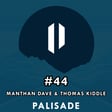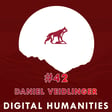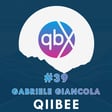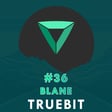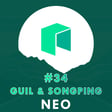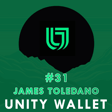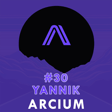
#35 - Gaming industry trends, web3 gaming and the open metaverse
Ryan is the founder and CEO of Emergence, whose mission is to make blockchain more accessible and meaningful in video games. Ryan works to create a gaming ecosystem akin to a real-life metaverse.
The Impact of Narrative in Modern Gaming
Ryan pointed to games such as "Control," "Alan Wake," and "Life is Strange." He believes that gaming offers a unique medium for transmodal and networked narratives, allowing for more immersive and interactive experiences. Independent games like "What Remains of Edith Finch" have also captured seen success due to their experimental approaches to storytelling and consciousness.
The discussion touched on the challenges of adapting video games into other media. While some adaptations like "The Last of Us" and "Fallout" have been successful, others have fallen short due to a lack of understanding of the source material. Ryan emphasized the importance of creators deeply engaging with the original content to produce faithful and compelling adaptations.
Ryan observed that industries, including gaming, often become risk-averse when they reach the top, leading to pattern matching and a reluctance to innovate.
Initially working in Hollywood, Ryan became disillusioned with the industry's resistance to new and diverse storytelling. He shifted his focus to innovation, technology, and venture capital, recognizing that technology was beginning to outpace traditional entertainment mediums. This led him to become one of the first venture capitalists in Los Angeles to engage deeply with crypto and Web3 technologies.
Pioneering in Crypto and Web3 Technology
Ryan's early involvement in crypto began around the Ethereum ICO, where he recognized the potential for decentralized infrastructure to foster new ventures. He worked closely with industry pioneers and even assisted the Japanese government in understanding and integrating blockchain technology. His experiences underscored the importance of balancing decentralization and centralization for sustainable growth.
Ryan noted that extreme positions on either side carry risks. He believes that integrating decentralized technologies into existing systems requires nuance and consideration of all stakeholders, including governments and regulatory bodies.
Leveraging his background in both gaming and blockchain, Ryan founded Emergence to simplify Web3 integration for game developers. Emergence offers an SDK for game engines like Unreal Engine and Unity, allowing developers to easily incorporate blockchain features into their games. With over 50,000 downloads, the platform empowers developers to create innovative, decentralized gaming experiences.
Partnerships and Collaborations Shaping the Open Metaverse
Ryan emphasized the importance of storytelling and collaboration in building the open metaverse. Emergence has partnered with entities like Futureverse and influential figures such as Neal Stephenson, the author of "Snow Crash." These collaborations aim to create interoperable worlds and cinematic universes that extend beyond traditional gaming boundaries.
This podcast is fuelled by Algorithmic crypto trading platform Aesir.
